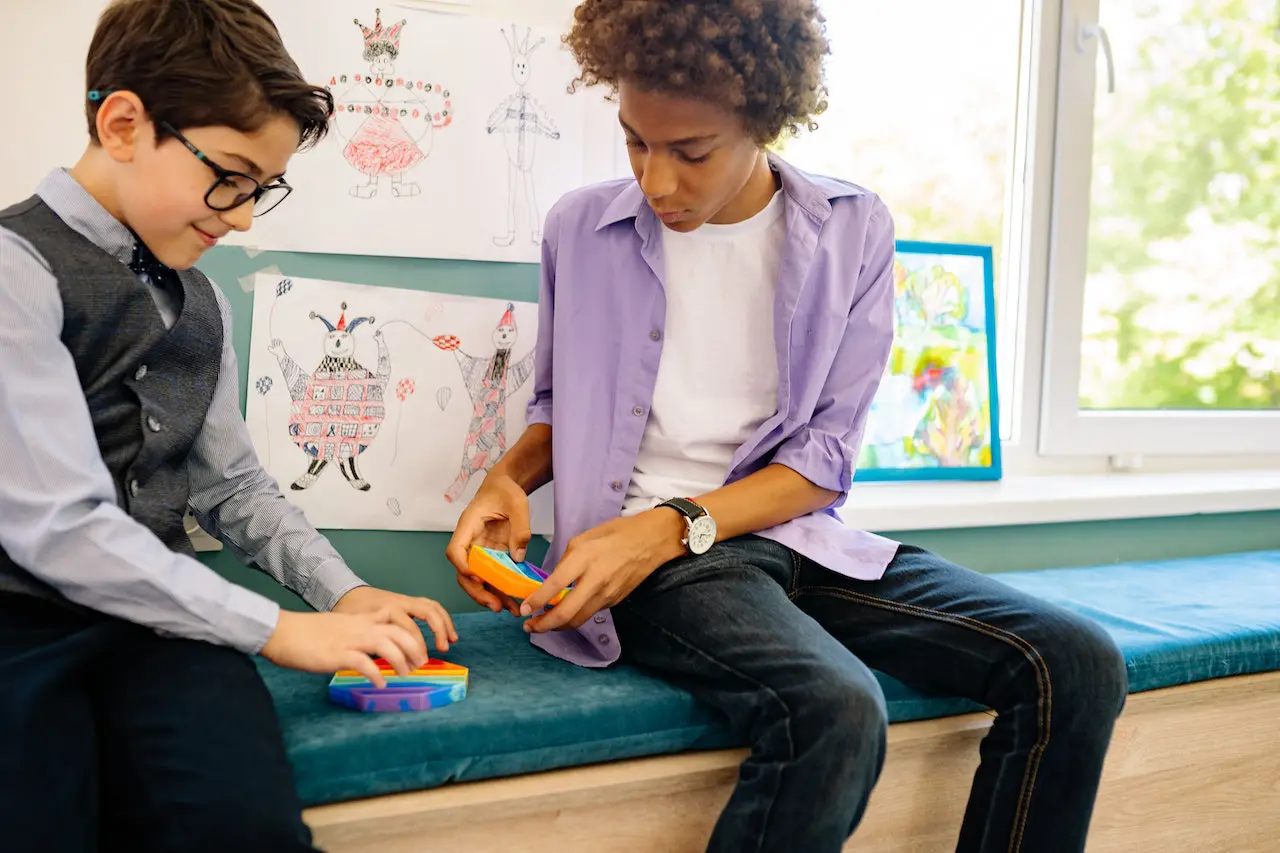Early Intervention for Sensory Processing Disorder

The Importance of Early Intervention
Early intervention is essential for individuals with SPD, as it can significantly impact their ability to develop appropriate sensory processing skills and strategies. Early intervention often includes occupational therapy, which focuses on identifying an individual's specific sensory challenges and creating a personalized intervention plan to address these needs.
Collaborating with Schools and Educators
A strong partnership between families and educators is vital in supporting children with SPD. Teachers/teaching assistants / early years practitioners all play a significant role in identifying potential sensory processing difficulties and implementing appropriate accommodations and strategies within the classroom setting. Collaborating with schools and educators can help ensure that children with SPD receive the support they need to succeed academically and socially.

Some examples of classroom accommodations and strategies for children with SPD include:
Providing preferential seating:
Allowing a child with SPD to sit in an area of the classroom that minimizes sensory triggers, such as away from noisy fans or bright windows, can help reduce sensory overwhelm and improve focus.
Offering sensory breaks:
Sensory breaks can help children with SPD self-regulate and maintain an optimal level of arousal. These breaks include a short walk, deep pressure activities, or access to calming sensory tools.
Implementing visual supports:
Visual supports, such as schedules, social stories, and visual cues, can help children with SPD understand expectations and routines more easily.

Encouraging the use of sensory tools:
Allowing children with SPD to use sensory tools, such as fidgets, chewelry, or noise-cancelling headphones, can help them self-regulate and focus during challenging tasks.
The Role of Parent Support Groups and Online Communities
Parent support groups and online communities can be valuable resources for families navigating the challenges of SPD. Connecting with others who share similar experiences can provide a sense of understanding, validation, and camaraderie. These groups and communities often offer parents and caregivers practical advice, resources, and emotional support.

In addition to parent support groups, online forums and social media platforms can be valuable sources of information and connection for individuals with SPD and their families. Sharing personal experiences, strategies, and resources can help foster a sense of community and support for those impacted by sensory processing challenges.
Conclusion
Sensory processing disorder is a complex and multifaceted condition that requires understanding, support, and tailored interventions. As an experienced occupational therapist, I am committed to using this blog as a platform to share my expertise, insights, and resources to help individuals with SPD (although I would never personally call it a ‘Disorder’!) and their families navigate the sensory world.
Through education, advocacy, and collaboration, we can work together to create a more inclusive and supportive environment for individuals with sensory processing challenges. Book a call to find out more about the Sensory Super System for Education - from nursery to university! Or Support for Home Educators. x
Stay tuned for future blog posts, where we will dive deeper into specific aspects of SPD, discuss the latest research and developments, and provide practical tips and strategies for supporting individuals with sensory processing challenges.
